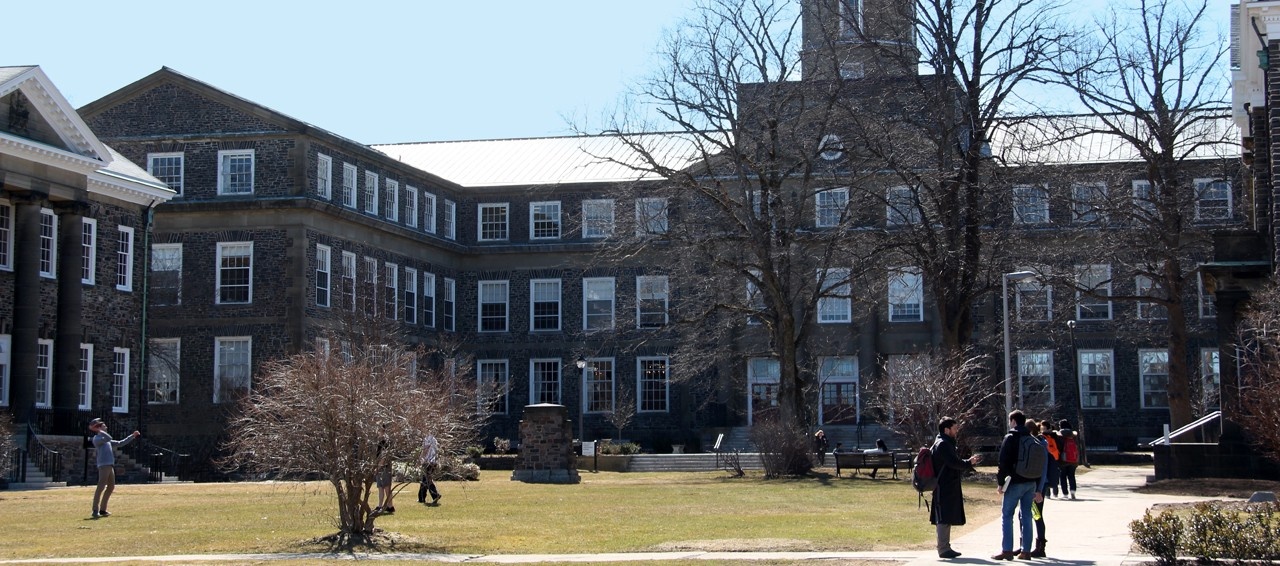Studying in Canada
HELPFUL RESOURCES:

INDIVIDUAL & GROUP SERVICES
The International Centre regularly hosts a variety of in-person and virtual workshops, webinars, information sessions, and drop-in services. For a full list of what’s scheduled, visit the International Centre Events page.
Please refer to this page for information about the documents that you require and the steps you should follow to enter and remain in Canada as an international student.
Study Permit
Study Permit: If you are an international student and your program of study is longer than 6 months, you require a valid Study Permit to study in Canada. Some exceptions apply: programs that are less than 6 months (e.g. single semester exchange students), and online programs. If you are in a program that includes a mandatory co-op, internship, practicum, or placement, you additionally require a Co-op Work Permit.
Study Permit Extension
Study Permit Extension: This extends your stay in Canada as a student so that you can continue or complete your academic studies. You must extend your permit before it expires or you will lose your student status in Canada. You should submit your study permit extension application at least 2-3 months before your study permit expires.
Provincial Attestation Letter (PAL)
New in 2024 and expanded in 2025, certain groups of international students now require a Provincial Attestation Letter (PAL) when applying for a new study permit or a study permit extension. A PAL is an official document, issued by the province or territory where the Designated Learning Institution (DLI) is located, that confirms you are eligible to apply for a study permit. PALs are issued after an international student has been formally offered admission to a DLI (e.g. HÂþ») and paid their registration deposit. HÂþ»â€™s Admissions Office will advise you on the PAL process, including whether you require a PAL, after your application to HÂþ» has been received. For questions about your HÂþ» application and the application process in general (including PALs), please contact the Admissions Office at international.admissions@dal.ca.
More information about the PAL, including which categories of students require a PAL and which do not, can be found on the New Student Immigration Information page.
Co-op Work Permit
Co-op Work Permit: Students in programs that include a mandatory work term, internship, practicum, or placement require a Co-op Work Permit which can be requested as part of your original study permit application. Students who decide later in their academic program to participate in an optional work term, internship, practicum, or placement will need to apply separately for a Co-op Work Permit after they arrive in Canada.
Temporary Resident Visa (TRV)
Temporary Resident Visa (TRV): A TRV is a travel document that allows you to enter (and re-enter) Canada. Citizens of certain countries may require a TRV, so you should Students who are applying for a Study Permit from outside Canada will automatically receive a TRV when their Study Permit application is approved. No separate application is required. To avoid any issues entering or re-entering Canada during your studies, make sure to renew your TRV before it before it expires.
Electronic Travel Authorization (eTA)
Electronic Travel Authorization (eTA): An eTA is an electronic travel document that is used by citizens from visa-exempt countries to enter, re-enter, and transit through Canada. Depending on your citizenship, you may require an eTA. . Students who are applying for a Study Permit from outside Canada will automatically receive an eTA when their Study Permit application is approved. No separate application is required.
Passport
All students need a passport issued by the government of your country of citizenship, certifying your identity. It is used when travelling to and from foreign countries. You must have a valid passport when applying for a new study permit, a study permit extension, or a Post-Graduation Work Permit (PGWP). You are not eligible for a new study permit, a study permit extension, or a PGWP if your passport has expired or if your passport is due to expire within 6 months. Furthermore, the validity of a new study permit or PGWP cannot exceed the validity of your passport. For example, if your passport is valid for another 12 months, the maximum validity of your new study permit or PGWP will be 12 months.
It can often take many months – and may require a trip to your home country – to renew your passport, so be sure to start this process at least 12 months before your passport expires.
